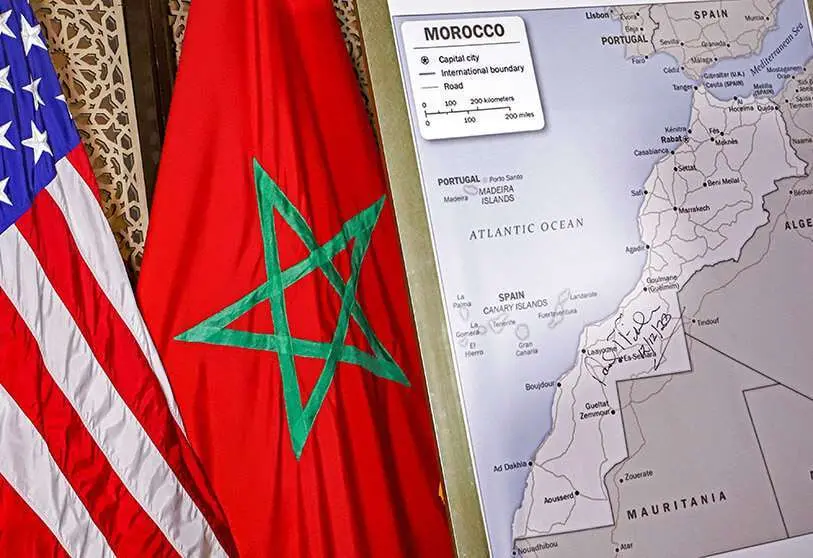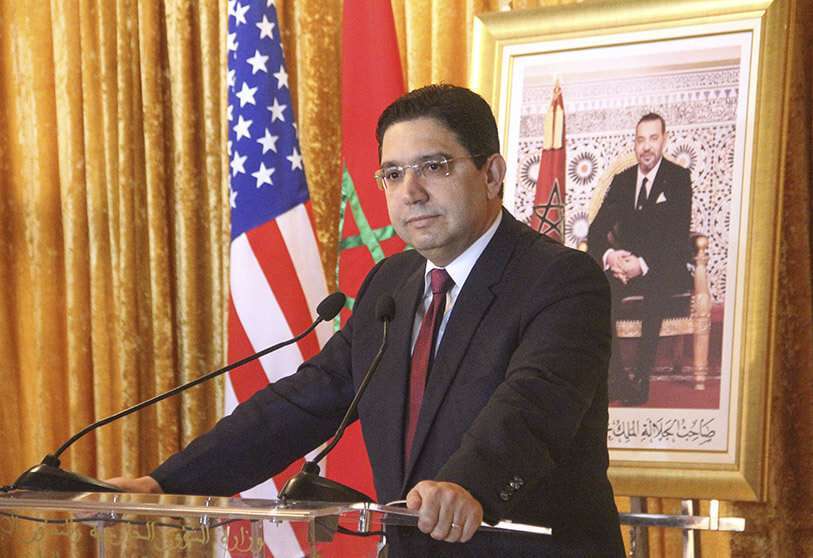Estados Unidos apoya la labor de Staffan de Mistura y se compromete nuevamente con la marroquinidad del Sáhara

The US State Department announced its support for the UN Special Envoy for Western Sahara, Staffan de Mistura, with a view to seeking a political solution between the parties involved in the Saharawi conflict, as pointed out by the media Hespress and Rue20.
The dialogue between Morocco, the Polisario Front, Algeria and Mauritania, mediated by the UN, continues to work towards a pact between the different parties to put an end to decades of confrontation in the region.
"We support their efforts to relaunch a credible political process leading to a lasting and mutually acceptable political solution to the Sahara conflict," the US State Department said.
This official US statement coincides with the tour that has led Staffan de Mistura to visit Morocco, to meet with Foreign Minister Nasser Bourita and the Kingdom's permanent ambassador to the UN Omar Hilale, and the Tindouf refugee camps in Algerian territory in order to talk with representatives of the Polisario Front and the Algerian authorities and to monitor the situation in the area on the ground.

On the occasion of this announcement, the US State Department also reaffirmed its full support for the formula of broad autonomy for Western Sahara under Moroccan sovereignty advocated by the Alawite kingdom, all in accordance with UN postulates. "We continue to view Morocco's autonomy plan as serious, credible, and realistic", the State Department officially stated, as reported by Rue20.
Morocco has been advocating the need to maintain political dialogue between the parties involved in the Western Sahara conflict: the Alawi kingdom itself, the Polisario Front, Algeria and Mauritania. All of this under the supervision of the United Nations.
The North African country's proposal for broad autonomy for the Sahrawi territory under Moroccan sovereignty receives broad international support from important nations, such as the United States, the United Arab Emirates, the United Kingdom and, more recently, Germany. Especially after Donald Trump's US administration recognised the Moroccan sovereignty of Western Sahara in exchange for the North African nation establishing diplomatic ties with Israel, following in the wake of the famous Abraham Accords, by which the Israeli state established political relations with several Arab countries such as the Emirates and Bahrain.
Opposing this Moroccan proposal is the position of the Polisario Front, which advocates holding a referendum on independence for the Sahrawi people. This proposal has little support, including that of Algeria, Morocco's great political rival in the Maghreb, with which it maintains tense relations after breaking off diplomatic relations with the Kingdom last summer.
As several analysts have pointed out, this latest move by the Algerian regime is yet another sign of an international isolation that contrasts with the good relations that the Alawi kingdom maintains with many relevant countries, as has been demonstrated by the moves made by nations such as the United States and Germany more recently to strengthen ties with Morocco.

The UN Secretary General's new Special Envoy for Western Sahara, Staffan de Mistura, paid a visit to the headquarters of the Sahrawi Red Crescent, and met with Buhubeini Yahya Buhubeini, president of the Sahrawi institution responsible for providing basic foodstuffs for Sahrawi refugees, as reported by ECSAHARAUI.
He also met with NGOs working in the refugee camps to check on the humanitarian situation in the area.
The more than 170,000 people currently living in the Sahrawi refugee camps in Tindouf, south-west Algeria, are in very difficult conditions, worsened by the coronavirus pandemic, and this is a cause for concern.

Staffan de Mistura is also scheduled to meet with the leader of the Polisario Front, Brahim Ghali, and then to visit Mauritania, as well as to return to Algeria after visiting the Tindouf camps.
It should be noted that Brahim Ghali was accused before the Spanish National Court by several activists who accused him of alleged acts of terrorism and torture in the Tindouf camps. The Polisario Front leader also provoked the latest diplomatic confrontation between Spain and Morocco due to his presence in Spanish territory to be hospitalised for a respiratory ailment. The North African country requested explanations from the Spanish government of Pedro Sánchez for allowing Brahim Ghali to enter its territory and for not having duly informed the Moroccan authorities of this. This event was followed by other uncomfortable situations such as the illegal entry of thousands of Moroccan immigrants through the Ceuta border or the withdrawal of the Moroccan ambassador from Madrid. All of this under the permanent shadow of the problem for Morocco that Spain has not sufficiently supported its thesis on Western Sahara.










